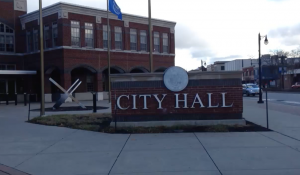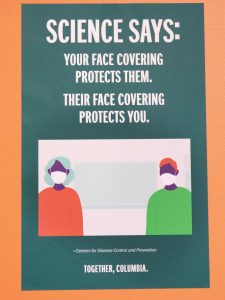Plastic bags in stores larger than 5,000 square feet would be banned in Chicago under an initiative proposed Wednesday by Ald. Joe Moreno (1st).

“We use three billion – B – billion of these a year,” Moreno said, holding up a crumpled white plastic bag at a press conference before the Chicago City Council’s meeting. “Quite frankly, it’s time to get rid of them for good.”
Moreno, who was joined by Ald. Daniel Solis (25th), Ald. Bob Fioretti (2nd) and Ald. Ameya Pawar (47th), called food store chains Aldi‘s, Whole Foods and Trader Joe’s “progressive” for not using the polyethylene bags.
Instead, those chains offer their customers paper and reusable bags.
“Our primary bags are recycled brown paper bags, and we offer reusable bags for 99 cents to $6.99,” said Alison Mochizuki, a spokeswoman for Trader Joe’s. “People don’t know this, but we’ve been using reusable bags since 1971.”
Kristin Smith, secretary and co-founder of non-profit environmental Surfrider Foundation’s Chicago chapter, supported the aldermen, saying the ban would call for a shift away from using plastic bags.
Smith underscored the extent of the damage plastic bags inflict on the environment. When Surfrider does a beach cleanup, 30 percent of what they pick up is plastic bags, she said.
“[Plastic bags] travel long distances,” Smith said. “A bag can start in Kenosha and end up on a beach in Chicago and vice versa. Not only are they hideous to see, they’re awful to have in the water.”
Moreno, meanwhile, is concerned about the cost of cleaning up the bags to the city.
“It’s terrible for Streets and Sanitation workers,” he said. “When you talk to a worker, when they clean up a sewer, they are pulling dozens and thousands of these bags out.”
Moreno wants Chicago to follow the lead of San Francisco, which banned plastic shopping bags in 2007. The ban reduced usage by 90 percent, from 22.5 million per year to less than 3 million per year.
“It’s about time we did it in Chicago,” Moreno said. “We need to be part of history.”
In an interview after the press conference, Fioretti emphasized the public’s right to understand why the ban is necessary.
“An information campaign will be part of the whole process of these plastic bags,” Fioretti said. “I think that’s crucial. Our citizens need to know what damage is being caused by the use of these plastic bags.”
Fioretti says he tried to implement a similar plastic bag ban three years ago but was unsuccessful. But now “we have a good progressive majority here,” he said.
Jack Mozloom, spokesman for the National Federation of Independent Business, says while the NFIB won’t take a position on the ordinance, the organization has generally opposed similar restrictions in other states because they limits choices for small businesses.
While the ban is restricted to stores larger than 5,000 square feet, Mozloom says the ordinances doesn’t necessarily rule out small businesses, since the federal government’s definition of a small business is one with fewer than 500 employees.
“Limited choices mean increased expenses and increased prices,” Mozloom said. “This is a bad time for the economy and for Illinois.”
While it’s not clear if and when the proposal will be considered, the ordinance was referred to the city’s Committee on Health and Environmental Protection.
Moreno says businesses larger than 5,000 square feet who don’t comply with the ban would face fines starting at $1,000. Moreno says the ordinance, if approved, will benefit Chicagoans.
“This is not a burden,” Moreno said. “This is moving our city and industry further. The taxpayers in Chicago are going to be the winners in this.”

















Be First to Comment